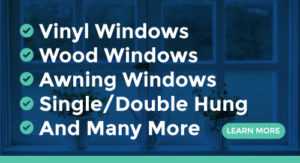
How New Windows Can Lower Your Bills
As homeowners seek ways to improve their home’s efficiency and reduce utility costs, one of the most impactful changes they can make is updating their windows. At 3WindowsEstimates.com, we understand the value of high-quality windows in energy conservation. In this blog, we’ll explore how investing in new windows can lead to substantial savings on your energy bills.
The Role of Windows in Home Energy Efficiency
Windows play a crucial role in regulating indoor temperatures. Old or poorly insulated windows can be a major source of energy loss. In summer, heat enters through windows, making air conditioning work harder. In winter, valuable heat escapes the same way, driving up heating costs. Modern windows are designed to counteract these issues.
1. Improved Insulation
Modern windows are often double or triple-glazed, containing inert gases between panes. This design drastically reduces the amount of heat transfer, keeping your home warmer in the winter and cooler in the summer.
2. Advanced Framing Materials
Today’s window frames are made from materials like vinyl, fiberglass, or treated wood, which offer better insulation than traditional aluminum frames. These materials help minimize the overall thermal transfer.

3. Low-Emissivity (Low-E) Coatings
Low-E coatings on windows reflect infrared light, keeping heat inside in the winter and outside in the summer. They also protect against UV rays, preventing your furniture from fading.
4. Proper Sealing and Installation
A key aspect of window efficiency is proper installation. Windows must be sealed correctly to prevent air leaks. Professional installation ensures that your windows are fitted perfectly, eliminating drafts and energy leaks.
The Financial Benefits of Energy-Efficient Windows
Investing in new windows not only enhances comfort but also offers significant financial benefits:
- Reduced Energy Bills: Efficient windows reduce the need for heating and air conditioning, leading to lower utility bills.
- Increased Home Value: Energy-efficient upgrades are appealing to homebuyers, potentially increasing your home’s market value.
- Eligibility for Rebates and Tax Credits: Some regions offer incentives for energy-efficient home improvements.
How 3WindowsEstimates.com Helps
At 3WindowsEstimates.com, we connect you with top-rated window installation companies. Our experts provide personalized recommendations based on your home’s needs and budget. With our help, you can ensure that you’re making a smart investment in your home’s efficiency and comfort.
Upgrading to energy-efficient windows is a wise decision for any homeowner looking to reduce their energy bills and increase their home’s comfort and value. With 3WindowsEstimates.com, finding the right windows and installation service is easier than ever. Contact us today to learn how we can help you make your home more energy-efficient.
Understanding the Cost of New Windows
When considering new windows, it’s important to understand the investment and how it translates into long-term savings. Here’s a closer look at the cost aspects:
1. Factors Influencing the Cost of New Windows
- Window Material: The cost varies depending on the material (vinyl, wood, fiberglass, etc.). Each material has different insulation properties and longevity.
- Type of Glass: Options like double-glazing or triple-glazing, and special features like Low-E coatings, impact the price.
- Customization: Custom sizes or styles, like bay or bow windows, will be more expensive than standard sizes or styles.
- Installation Complexity: The cost can increase based on the difficulty of the installation, which may involve additional work like frame repair or resizing.
2. Average Cost Range
The cost of new windows can range widely. On average, homeowners might spend anywhere from $200 to $1,200 per window, depending on the factors mentioned above. Keep in mind that high-quality, energy-efficient windows will be at the higher end of this spectrum but offer greater energy savings.
3. Long-Term Savings vs. Upfront Cost
While the upfront cost can be substantial, it’s essential to consider the long-term savings:
- Energy Bill Reduction: Energy-efficient windows can reduce energy bills by up to 15-20%, depending on the climate and the condition of the old windows.
- Maintenance Savings: New windows often require less maintenance than older windows, especially those made with modern, durable materials.
- Avoiding Future Price Increases: Investing in new windows now can lock in current prices, potentially saving money as window prices increase over time.
4. Financing and Incentives
Many homeowners take advantage of financing options, rebates, and tax credits to help offset the initial cost. Check with local energy companies or government programs for available incentives.

5. Return on Investment (ROI)
While the ROI can vary, energy-efficient windows are generally a smart investment. Besides energy savings, they improve curb appeal and comfort, which are significant factors if you plan to sell your home.
How 3WindowsEstimates.com Can Assist
At 3WindowsEstimates.com, we understand that the cost of new windows is a significant consideration. We’re here to help you navigate through the options and find the best solution that fits your budget and energy-saving goals. We can connect you with professionals who offer competitive pricing and high-quality services.
Conclusion
Investing in new windows is a decision that pays off in the long run. With the right choice, homeowners can enjoy reduced energy bills, increased comfort, and enhanced home value. Let 3WindowsEstimates.com be your partner in this valuable home improvement journey. Contact us to get started with your window upgrade today.


Leave a Reply